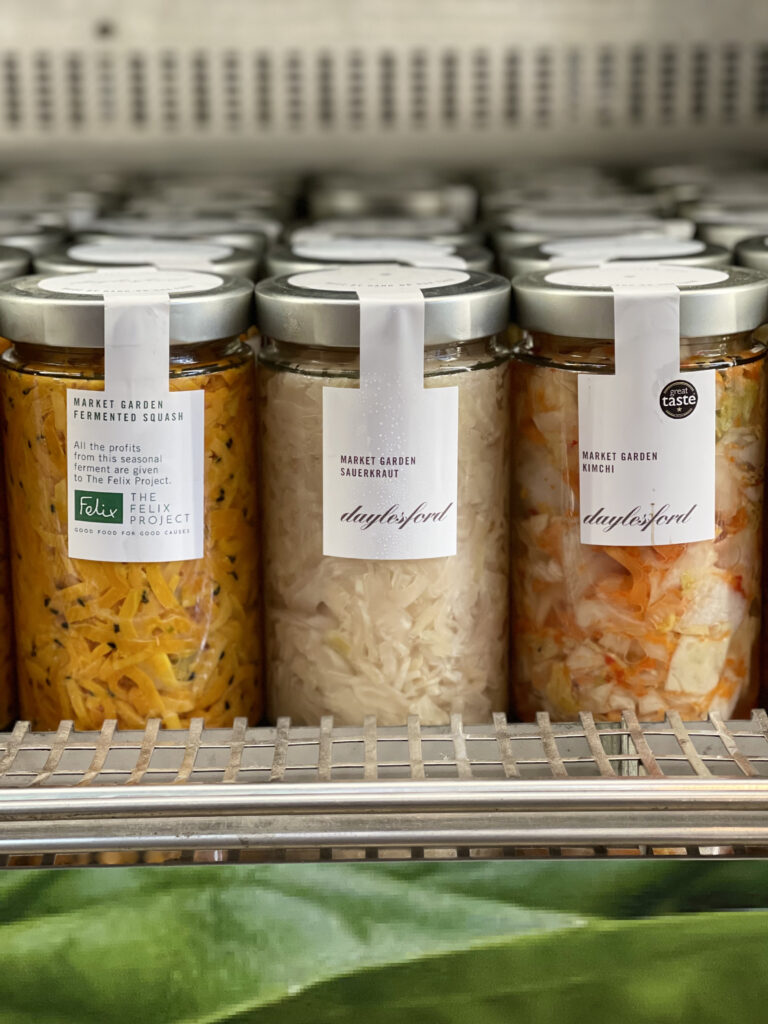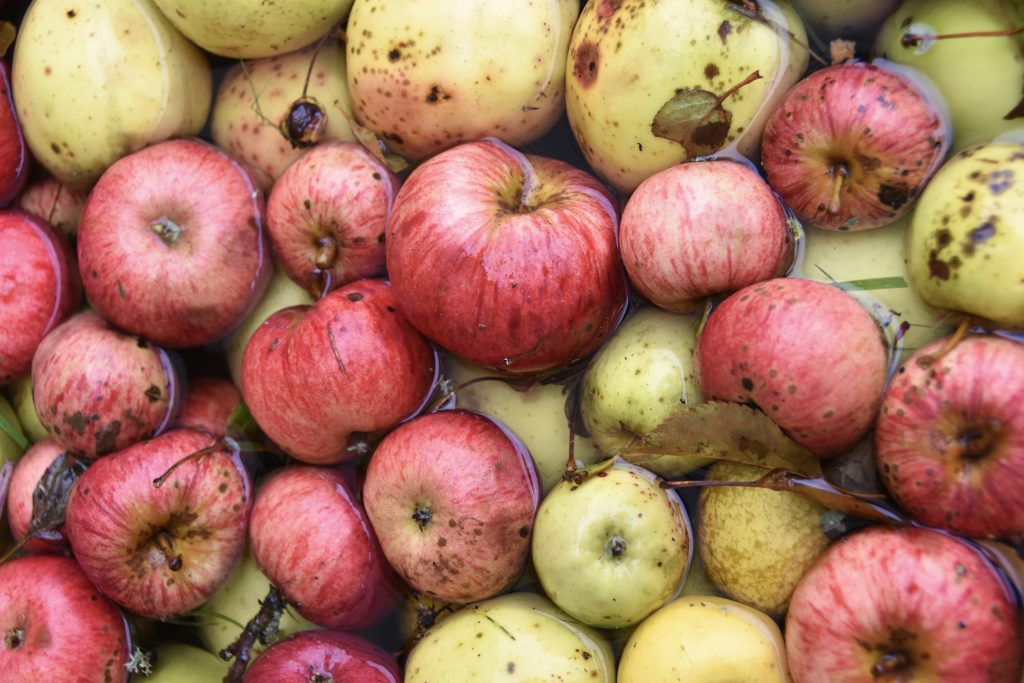
STORIES · 29.03.22
Farming | Food | Mindful Living
Food waste is one of the largest contributors to the world’s carbon dioxide emissions, and last month I wrote about the different ways we can all help to reduce this in our homes. As spring arrives and we begin another growing cycle on the farm, I wanted to explain a little more about Daylesford’s ‘closed loop’ approach to producing food, and some of the practices we have adopted to reuse waste. Alongside the environmental impact of food waste, I know how incredibly hard my farm, production and café teams work to grow, harvest, package and serve our organic food – providing even more reason to commit to not wasting a scrap.
The farm’s on-site fermentary is one of my proudest achievements; it is here that any misshapen, damaged or surplus vegetables grown in the Market Garden are transformed into seasonal ferments. Whether it’s cabbages, squashes, peppers or cucumbers, the vegetables are used to create jars of sauerkraut, pickles and kimchi that are sold in our farmshops and online. It is such a simple idea, but so rewarding to know that all of nature’s abundance is being preserved – especially as something so nourishing for our gut health.
it is amazing and sobering to think that without initiatives like The Felix Project, all that edible, nourishing food may have gone to waste
Some of the profits from this range also go to The Felix Project – a charitable organisation that supplies healthy meals to the most vulnerable in our society. The charity – with whom we have had a partnership for five years now – also collects surplus food stock from our farmshops and cafés, redistributing it among communities where many cannot afford to eat. Over the last two years, we have donated 12.5 tonnes of food – providing the equivalent of 30,000 meals to charities, schools and food banks across London. It is amazing and sobering to think that without initiatives like this, all that perfectly edible, nourishing food may have gone to waste.

the fermentary is such a simple idea, but it is so rewarding to know that all of nature’s abundance is being preserved – especially as something so nourishing for our gut health
Making cider is another way we make good use of food that cannot be sold in our farmshops. Bruised apple windfalls are gathered from our heritage apple orchard every autumn, before being pressed and bottled with a little sugar to create our refreshing organic Evenlode cider. In a similar way, many more fruits, vegetables, animal carcasses and other produce that is unsuitable for the farmshop is sent to our ‘Black Barn’ – where our chefs cook with them to create Daylesford’s delicious homemade bone broths, soup pouches and ready meals.
Composting is one of the easiest ways we can all reduce food waste – converting organic waste matter into food for our soil. As well as nourishing our crops, compost increases biodiversity on the farm, reduces greenhouse gases and prevents waste going into landfill. Our compost is made up of waste collected from our farmshops and cafés such as juice pulp, coffee grinds, vegetable peelings and kitchen scraps. You can do this on a much smaller scale in your own home too. I have linked a video tutorial from our Head Gardener Jez here to help you get started.
Partnering with Too Good To Go has also enabled us to distribute edible food approaching its sell-by date directly to our customers. Through their innovative app, users can purchase bags of organic produce to collect from our shops at a reduced price. Not only does this prevent perfectly good food from going to waste, but the element of the unexpected also encourages customers to experiment with seasonal organic ingredients they may not have tried before. Daylesford’s Zero Waste Boxes work in a similar way, enabling you to order a small or large selection of produce for home delivery on a preferred day. If you do decide to give one a try, please do share the dishes you create by sharing them with me on my Instagram page.
